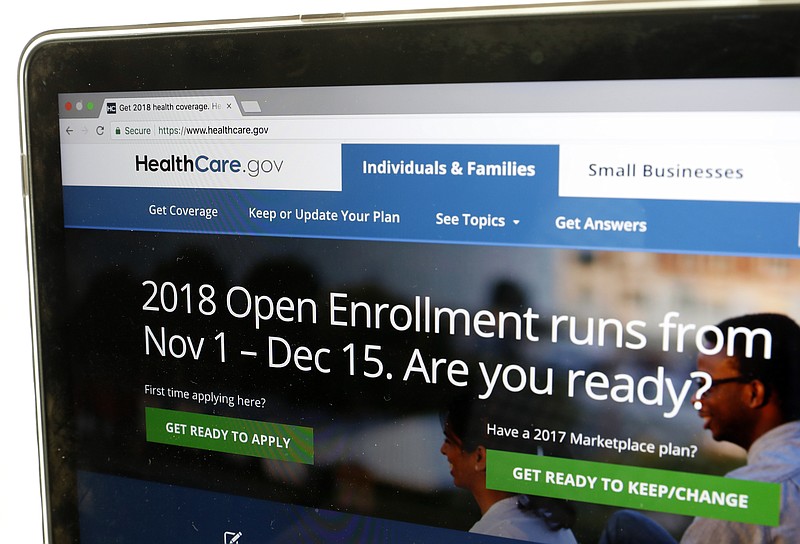It's sign-up season for the Affordable Care Act, but the Trump administration isn't making it easy - cutting the enrollment period in half, slashing advertising and dialing back on counselors who help consumers get through the process.
Many people already faced fewer choices and higher premiums. But President Donald Trump's decision to cancel a subsidy to insurers that lowers consumer costs compounded the turmoil, pushing premiums even higher.
But even before Trump recently cut off cost sharing payments to insurers because such payments were not specified in Obamacare, BlueCross BlueShield of Tennessee planned to boost individual rates by an average 21 percent in 2018. BlueCross is the only insurer still serving the Chattanooga and Knoxville markets.
Cigna Healthcare plans to raise its individual rates by an average 42.1 percent elsewhere in Tennessee next year.
Open enrollment starts today and ends Dec. 15, a sign-up period six weeks shorter than last year's.
Add it all up and the number of uninsured people may start rising again, eroding gains that drove the uninsured rate to a historic low.
"It certainly is a hostile takeover," said health policy expert Joe Antos of the right-leaning American Enterprise Institute. "We are going to see a decline in enrollment. The people who will drop out in droves are the ones who are not getting a premium subsidy."
Josh Peck, who ran the advertising program under the Obama administration for the health care exchange sign-ups, predicts the cutbacks in advertising for the exchanges from $100 million last year to $10 million this year will result in at least 1.1 million fewer people signing up for one of the exchange programs.
"The threat to Open Enrollment this year is very real," Peck said. "People will be hurt by the administration's actions."
More than 9 million people currently have private plans through the ACA's government-sponsored markets. The Health and Human Services department said sticker- price premiums are going up 37 percent for a hypothetical young adult buying a type of midrange "silver" plan.
But more than eight in 10 receive subsidized premiums, and are cushioned from rate increases.
In the Chattanooga area, those making $25,000 a year or less willing to buy the cheapest coverage option will get enough government subsidies to make their coverage free, according to an analysis by the Kaiser Family Foundation.
"Because of the way that premiums are set this year, people have to shop around to make sure they are getting a plan that makes sense for them," said Gary Claxton, a co-author of the report. "Telling people that the choice is to pay a penalty [for being uninsured] or take a free plan, is a pretty attractive proposition."
American Exchange, a local online provider, expects to grow its nationwide business this year despite overall expectations of a flat or declining number of enrollees.
Bobby Huffaker, president of the Chattanooga-based insurance broker, said he firm has 26 employees in Chattanooga manning phones and handling online requests to provide information and signup enrollees for indivdual plans in 43 states. He expects to grow the number of signups this fall from about 12,000 last year to 35,000 this year.
"We're doubled our business each year with new partnerships and we're set to quadruple this year," Huffaker said.
With insurers exiting the market, about half of counties will only have one participating carrier offering plans. Eight states have only one insurer.
But Huffaker said his staffers (available online at americanexchange.com) try to provide more counseling than what is available on the government website at healthcare.gov.
Polls show widespread consumer confusion. Some are unsure if the health law has been repealed.
Trump administration officials say they're aiming for smooth and efficient sign-ups. HealthCare.gov has new features intended to make it more user- friendly and the call center is fully staffed.
Officials say they cut ads because spending so much money wasn't warranted, and the scaled-back counseling programs weren't enrolling many consumers.

